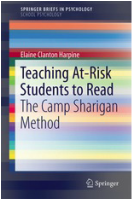
Neuroimaging research is showing clear, irrefutable evidence that whole language, “look say,” guessing, memorizing word lists, and especially, Reading Recovery, simply do not teach children to read. So, why do we keep clinging to methods that do not work? A prospective teacher asked me just the other day: “What am I supposed to do? I’m paying sky-high tuition to learn a method that doesn’t work.” All I could say was, “Yes and we’ve known that it doesn’t work for over 16 years.” An important study by Yoncheva, Wise, and McCandliss, published in the journal Brain and Language, shows why phonemic awareness is better.
As Yoncheva, Wise, and McCandliss explain through their research on the effectiveness of whole language teaching methods vs. phonemic awareness, sounding words out by letter sounds (decoding phonemes) allows children to learn to read faster and more effectively, and even to learn new words that the child has never encountered before. They state that it is much better to teach a child to sound out the word c-a-t than to teach a child to memorize the word cat or to guess at the word cat from a picture.
I explain what phonemic awareness is, and how to teach phonemic awareness, in my new book, Teaching At-Risk Students to Read: The Camp Sharigan Method. If we really want to teach children to read, we must teach phonemic awareness, not memorization. Over 60% of children across the nation are failing in reading right now using whole language—memorize word lists-type methods. It’s time for a change. We need to adopt a teaching method that actually works.
 RSS Feed
RSS Feed
